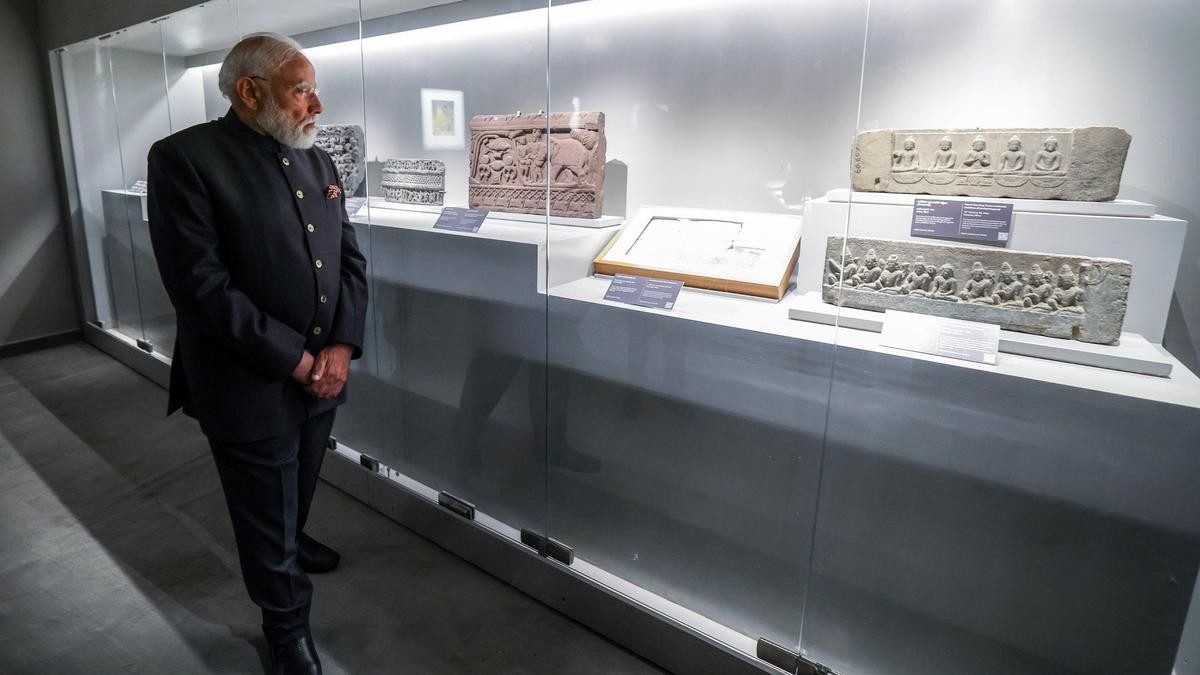



The Ministry of Commerce is addressing import surges and dumping practices by trading partners through the Directorate General of Foreign Trade and Directorate General of Trade Remedies. The DGFT regulates imports and exports, while the DGTR investigates dumping and subsidized imports. The measures aim to protect domestic industries, promote industrial growth, and promote self-reliance.

Copyright infringement not intended
Picture Courtesy: THE HINDU
The Ministry of Commerce is intensifying its efforts to curb import surges and combat dumping practices by trading partners.
Dumping => When a country or company sells its products in another country (like India) at prices much lower than what they charge in their own country.
Why do companies dump?
An import surge means a sudden increase in the amount of a particular product coming into India. The Department of Commerce has established a comprehensive system to monitor import surges across all commodities.
Why is an import surge a problem?
The Ministry of Commerce empowers two key departments to lead this initiative: the Directorate General of Foreign Trade (DGFT) and the Directorate General of Trade Remedies (DGTR).
Directorate General of Foreign Trade (DGFT) => Formulates and implements the foreign trade policy of India
Directorate General of Trade Remedies (DGTR) => National authority for administering all trade remedial measures
|
Remedy Type |
Definition |
Purpose |
|
Anti-Dumping Duty |
Tax on goods sold below their normal value in the exporting country, harming the importing country's industry. |
To offset the unfair low price and protect domestic industry. |
|
Countervailing Duty |
Tax on goods that receive unfair subsidies from their exporting government, harming the importing country. |
To offset the unfair advantage gained from subsidies. |
|
Safeguard Duty |
Temporary duty on a sudden surge of imports (even if fairly priced) that cause serious injury to domestic industry. |
To give domestic industry time to adjust to increased competition. |
India, as a member of the World Trade Organization (WTO), must follow its rules when applying trade remedies.
WTO Anti-Dumping Agreement => Strict rules on how a country can investigate and apply anti-dumping duties.
WTO Agreement on Subsidies and Countervailing Measures (SCM Agreement) => Defines what constitutes a subsidy and outlines the conditions under which a country can impose countervailing duties.
WTO Agreement on Safeguards => Allows members to take emergency safeguard actions if imports increase to such an extent that they cause or threaten to cause serious injury to a domestic industry.
In June 2025, the DGTR initiated eight anti-dumping investigations across various product lines originating from a total of 12 countries or groupings.
|
Product Line |
Originating Countries/Groupings |
|
Industrial Chemicals |
China, Taiwan, Kuwait, Malaysia, Oman, Qatar, Saudi Arabia, UAE, Switzerland, EU |
|
Types of Glass Wool |
Egypt |
|
Types of Paperboards |
Indonesia |
By creating a fair competitive environment, the government prevents foreign goods from unfairly undercutting local products. This enables Indian manufacturers to compete on merit, promote industrial growth, safeguards jobs, and promotes self-reliance within the country.
|
FAQ What is "dumping" in international trade? Dumping refers to the practice where a country exports goods to another country at a price lower than their normal value or production cost. What is the role of DGTR and DGFT in curbing unfair trade practices? The Directorate General of Trade Remedies (DGTR) investigates dumping and other unfair trade practices, while the Directorate General of Foreign Trade (DGFT) implements trade policies and can restrict imports found to be causing harm. Which countries are currently under anti-dumping investigation by India? The DGTR has initiated investigations against 12 countries or groupings, including China, Taiwan, Kuwait, Malaysia, Oman, Qatar, Saudi Arabia, UAE, Switzerland, EU (for chemicals), Egypt (for glass wool), and Indonesia (for paperboards). |
Must Read Articles:
DIRECTORATE GENERAL OF TRADE REMEDIES
INDIA'S TRADE TRENDS, TRADE DEFICIT
ANTI-DUMPING DUTY: DEFINITION, IMPOSITION, AND IMPLICATIONS
Source: THE HINDU
|
PRACTICE QUESTION Q. Beyond the imposition of duties, what other policy interventions can the government undertake to strengthen domestic industries against dumping? 150 words |






© 2026 iasgyan. All right reserved